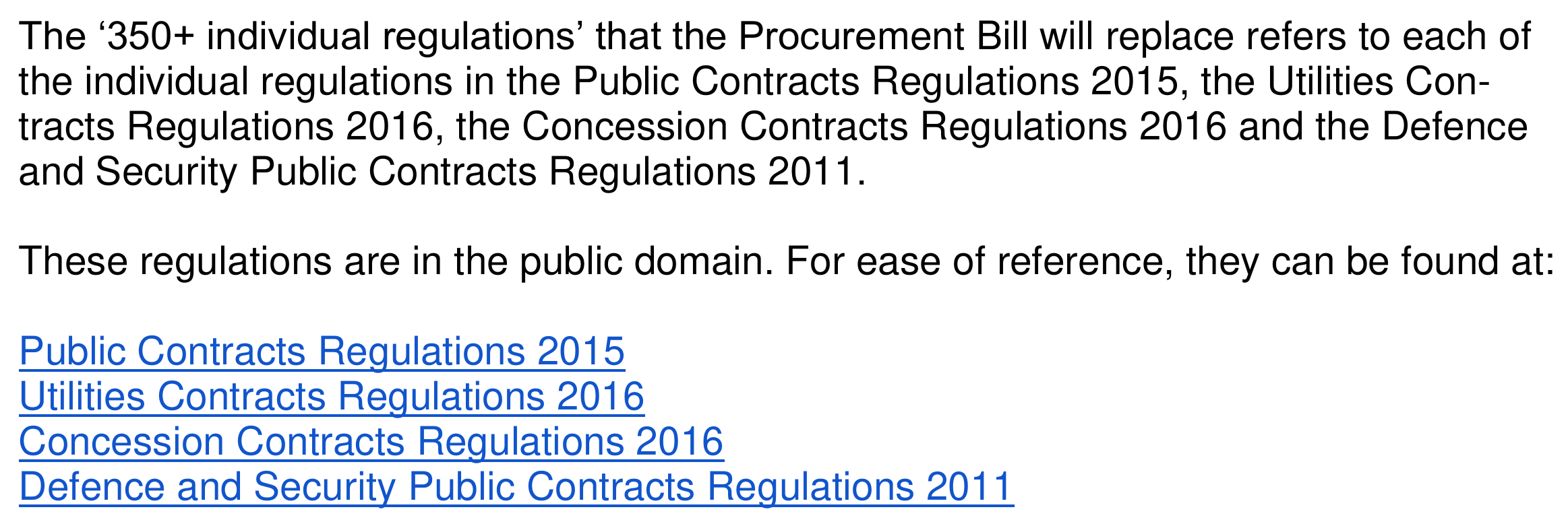The UK's Procurement Bill - are 350 EU rules to be ditched?

Back in June I took a look at the UK Government's proposed new Procurement Bill (link). One eye-catching claim was that 350 EU rules were to be "ditched", and I was curious to know what all those rules were, so I politely emailed the Cabinet Office to request an itemised list. Then when they ignored me, I submitted a Freedom of Information request 😉
In due course I received the following response:

This is sort of an answer, but not completely for a number of reasons. The regulations listed above are the UK laws, mostly introduced by Statutory Instrument, that brought the applicable EU regulations into UK law (although in a small number of cases they do add UK-specific regulations).
These four regulatory regimes cover procurement of different classes of item and service, and the new Procurement Bill will bring them all together into one place. This can be expected to simplify understanding of procurement rules for both the buyer and seller, but a significant part of the reduction in regulations claimed is effectively removal of duplication across the four previous regimes.
Another key issue is that those EU-derived regulations are also the mechanism by which the World Trade Organisation Agreement on Government Procurement (GPA) was embodied into EU and then UK law. Following Brexit, the UK remains a member of the WTO, and so the Procurement Bill will by necessity continue to implement GPA requirements. In effect, some of those rules weren't really EU rules at all, they were WTO rules, and they can't be ditched while the UK remains a WTO member.
The quick summary is that simplification and removal of duplication must be welcome, but anyone involved in Government procurement is unlikely to see anything close to 350 fewer rules being applied to any given procurement.
The Procurement Bill is currently with the House of Lords at the Committee stage. I'll be keeping an eye on it as it progresses towards becoming law in the UK.


